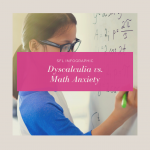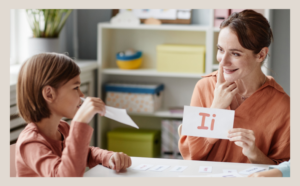No products in the cart.

By Amy Soukup, M.A., Director of Education
There are many people and components that come together to create a strong web of support for your child’s educational experience. While parents and caregivers are a vital part of this support, you are not alone! We and other professionals are here to problem solve, provide recommendations, and strengthen your child’s support. There is no one right path, and each child’s journey and web of support will look different and likely evolve over time. Your child’s well-being is at the center and brings all of the people and pieces together.
Who and what might be part of your child’s web of support?
Family and Caregivers
Parents, caregivers, and any other family members are the first line of support for a child’s learning development. While formal learning may often happen outside of the home, a love of learning, sense of curiosity, and academic confidence can all be developed and supported in the home. If at a loss, educational professionals (including those at Strategies for Learning) can provide suggestions of ways to support your child’s learning in the home.
In-School Support
Your child’s school team. While your child likely has designated classroom teachers, their team may also include a learning specialist, case manager, administrators, school psychologist or counselor, in-school specialists, and/or other support staff. If you’re not sure who all is assigned to support your child, ask your child’s classroom teacher or case manager for a list of contacts. This will ensure you have a strong window into your child’s day-to-day school experience as well as who to turn to with specific questions or concerns.
Assessments and Evaluations
While your child may likely receive some amount of informal or formal assessment at school, an additional evaluation performed by a neuropsychologist or other qualified professional is sometimes recommended in order to get a more in-depth and nuanced picture of your child’s needs. Neuropsychologists can perform comprehensive assessments and can inform data-driven intervention or support.
Specialized Instruction
While most students will receive some amount of support, accommodations, and/or modifications within their school experience, Educational Therapy or the equivalent will often be recommended in order to further support your child. Your child’s Educational Therapist or Specialist will have the unique expertise to equip your child with strategies to support how they learn best, so that they can apply these strategies to other learning environments such as their home or school.
Outside Services
These can be identified and recommended by a qualified professional such as your child’s physician or a neuropsychologist performing an evaluation for your child. Outside services can include but are not limited to vision therapy, occupational therapy, speech therapy, mental health services, medication or treatments indicated by your child’s physician and more.
Don’t know where to start? If feeling overwhelmed, one simple step you can start with is to make a consultation appointment with any organization or person with experience in educational advocacy or guidance. At Strategies for Learning, this is one of many services we offer to help families determine next steps to best support their child.
Schedule an initial consultation.
Check out our Recommendation and Resource Guide.







No comment yet, add your voice below!